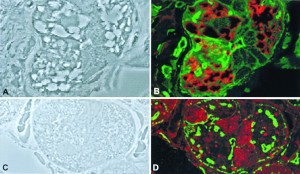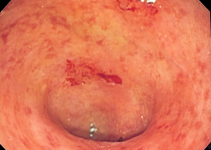Are you lately suffering from abdominal bloating and indigestion? Do not dismiss it as a minor stomach ailment as you might be actually having a digestive disorder known as Achlorhydria. Read and learn all about the causes, symptoms, diagnosis and treatment of this disease.
Achlorhydria Definition
Page Contents
This is a clinical condition characterized by reduced or absent production of gastric acid in the stomach. It is also closely associated with various other types of medical problems.
The condition is also referred to as “Hypochlorhydria”.
Achlorhydria Symptoms
The disorder is primarily manifested by problems like:
- Reduced acidity of digestive juices
- Lower level of hydrochloric acid (HCL) in the stomach
- Indigestion or affected digestion
- Abdominal bloating
Reduction in the production of gastric acid can lead to symptoms which resemble that of gastroesophageal reflux disease. It may also impair digestion of proteins through the inhibition of pepsin enzyme activation that depends upon a low level of gastric pH.
Picture 1 – Achlorhydria
Reduced level of stomach acid can also lead to an overgrowth of bacteria. This may result in diarrhea or lowered absorption of vitamins or nutrients. There is higher possibility of certain infections such as Vibrio vulnificus that occur from the consumption of seafood. Lower levels of stomach acid can cause nutritional deficiencies through the malabsorption of the basic electrolytes, such as zinc and magnesium, as well as K, C and B complex vitamins. Such deficiencies can lead to the development of various types of pathologies which can range from benign neuromuscular disorders to severely fatal diseases. A patient of Achlorhydria may suffer from severe stomach pains that are caused by digestion of food not appropriately broken down by the gastric acids.
The condition may also lead to the development of the following serious symptoms and health issues, such as:
- Acne
- Autoimmune disease
- Anemia
- Pernicious anemia
- Adrenal fatigue
- Accelerated ageing
- Bad breath
- Brittleness, weakening and peeling of nails
- Candida yeast infection
- Chronic hepatitis
- Deficiency of B12 vitamin
- Diabetes mellitus
- Diarrhea
- Eczema
- Food allergies and sensitivities
- Gastro-esophageal reflux disease or GERD
- Gallbladder diseases
- Irritable bowel syndrome or IBS
- Hashimoto’s thyroiditis
- Hypoglycemia
- High probability of stomach cancer
- Lupus erythematosis
- Osteoporosis
- Psoriasis
- Rosacea
- Rheumatoid arthritis
- Overgrowth of small intestinal bacteria
- Thyroid disorders
- Vitiligo
Achlorhydria Causes
Know about some of the main causes responsible for the development of this disorder.
- Hypothyroidism and the resultant slowdown of the natural basal metabolic rate of the body
- Use of drugs or antacids that lower the production or transportation of gastric acid
- Autoimmune disorders which cause production of antibodies against parietal cells that generally produce gastric acid
- Symptoms of rare disorders like Mucolipidosis (type IV)
- Symptoms of Atrophic Gastritis, Pernicious Anemia or Stomach Cancer
- Symptoms of Helicobacter pylori infection, where the bacterium neutralizes and reduces gastric acid secretion in the stomach for its own survival
- Gastric Bypass procedures like RNY and Duodenal Switch, where the gastric acid-producing areas of the stomach are either blinded or removed
- Pellagra, resulting from niacin deficiency
- Pancreatic islet cell tumors, such as somatostatinomas and VIPomas or vasoactive intestinal peptides
- Radiation therapy, that involves the stomach
Achlorhydria Prevention
As of now, no preventive measures can be recommended for avoiding the development of this disorder. However, improved sanitation and administration of potent antibiotics can be assistive in avoiding and eradicating the spread of Helicobacter pylori. Such measures can also help reduce the risk of autoimmune gastritis and atrophic gastritis, the most common causative factors for Achlorhydria. Reducing peptic ulcer surgeries also give greater protection against Achlorhydria.
Achlorhydria Diagnosis
Nearly 90% of all patients of this disorder are detected with antibodies against H+/K+ ATP-ase proton pump. Achlorhydria is diagnosed if the gastric pH levels remain greater than 4.0 in spite of maximum pentagastrin stimulation. Frequently, high gastrin levels are detected.
Achlorhydria Treatment
The treatment of this ailment is carried out by mainly addressing the underlying causes of the symptoms. Many doctors and physicians recommend using Betaine HCL or Betaine hydrochloride to supplement meals and increase the inflow of gastric acids and facilitate proper digestion. However, one should not confuse Betaine HCL with other forms of Betaine such as TMG (trimethylglycine) or DMG (dimethylglycine), which are non-acidic and sweet in taste. Contrary to TMG or DMG, Betaine HCL includes chloride, which decomposes in the stomach to produce Hydrochloric acid. This facilitates a lesser pH level and improves the disintegration of food. Betaine HCL is generally sold as a preparation containing pepsin, a digestive enzyme.
Apart from taking medications to reduce the pH levels of the stomach, mineral and vitamin supplements like vitamin B12 is generally recommended to effectively compensate for the malabsorption of nutrients. All foods consisting of high microbial elements are normally avoided. Gastrointestinal acidity is the primary defense against gastrointestinal tract infections. Hence, antibiotics, probiotics and antifungals may be required to cure recurring infections.
Achlorhydria Natural Remedies
Some patients rely on natural remedies to keep this disorder in check. Although the effectiveness of these remedies has not been proved yet, one can definitely try these out to feel better.
Picture 2 – Achlorhydria Image
- Bitter Herbs
- Betaine hydrochloride capsules
- Glutamine
- Probiotics
- Vitamin B Complex
- Multivitamins
- Herbal products such as garlic, grapefruit seed extract, enteric-coated peppermint oil and oregano oil
- Ginger Tea
These remedies consist of natural herbs as well as supplements based on materials extracted from nature. Due to this reason, no side effects are involved and the products can be used safely.
Achlorhydria Prognosis
Not much is known about the possible outcome of this disease. However, there have been some reports of an increased danger of gastric cancer. It has been noted that non-Helicobacter bacterium can develop from the stomach of an Achlorhydric patient having pH greater than 4.0. A stomach having normal pH only allows the propagation of Helicobacter species. Certain experiments involving Achlorhydric mice have demonstrated the capacity of non-Helicobacter bacteria to cause atrophic gastritis which can induce gastric carcinoma.
Achlorhydria is a serious health condition that can give rise to various symptoms and additional health issues. However, an early diagnosis along with timely medical care can help control this condition.
References:
http://www.ncbi.nlm.nih.gov/pubmed/4000241
http://www.badbreathhalitosis.com/article.php/Hypochlorhydria-PossibleCauseofBad
http://www.medical-library.net/hypochlorhydria.html
http://www.prohealth.com/library/showarticle.cfm?libid=13388



